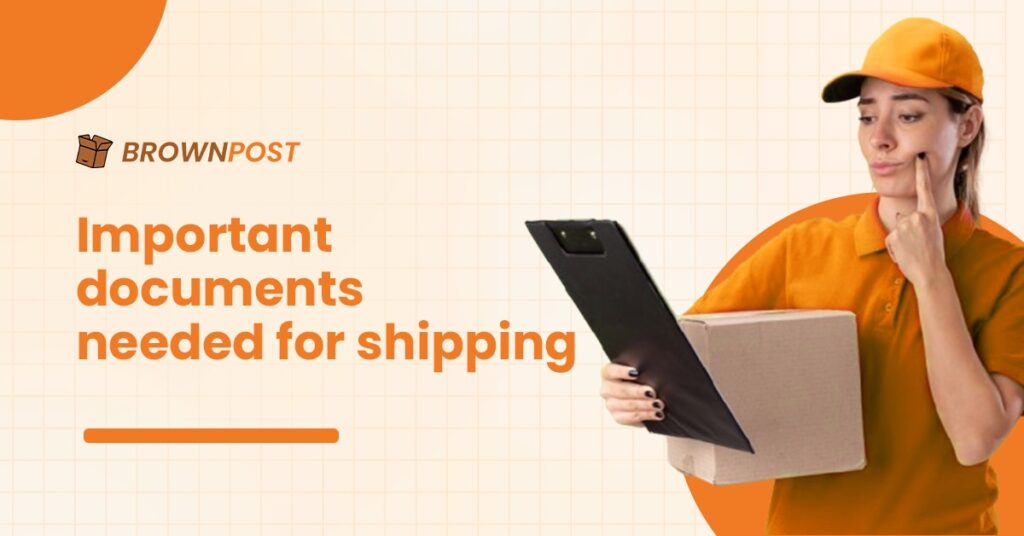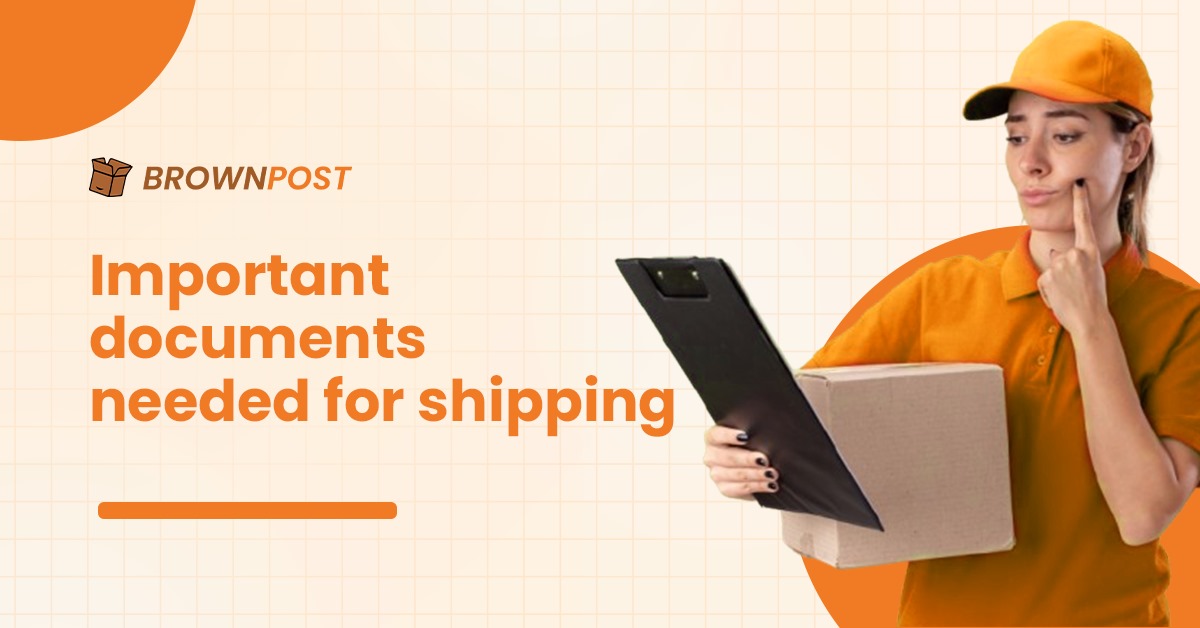Do your eyes still roll over when you look at the checklist of international documents bearing the big titles?
Even after processing several shipments, does the documentation process still make your head spin in circles?
The importance of documentation can be realized only at the dire times of your shipment journey. Imagine a situation where you booked the package and halfway through, it got held up due to a missing document.
Without knowing the know-how of the document, there is a higher chance for you to encounter multiple shipment hurdles like delays, unexpected charges, and invigilation from the customs authorities.
Here is a breakdown of the details you ought to know about the different shipping documents.
1. Shipping Label- Boarding pass of your shipment
The shipping label is the identity card of your package. It contains the necessary information about the parcel, which is mandatory for beginning the shipment journey.
The document will entail the following details,
- Courier service type- Express or standard
- Address of the sender & the recipient
- Weight & dimensions of the package
- Tracking number
Why it’s important?
- Helps with accurate routing for the delivery to happen smoothly.
- Prevents the delivery from going missing or losing it.
- Helps in enabling the tracking of the package.
2. Commercial Invoice- Ticket entry to a hassle-free shipment journey
It is a document which signifies the transaction between the buyer and the seller. It holds its significance in the process of customs verification. The document entails the following details beginning from,
- Nature and value of the goods inside the package
- Country of origin
- Harmonized system code (HS code)
Why it’s important?
- Hold its implication in acquiring customs clearance
- It aids in preventing customs delays
- It determines the import and export duties
3. Bill of Lading- The foundation of international trade
This document is the official contract signed between the owner of the goods and the chosen carrier. Mostly, it is applied in the case of confirming the receipt of packages which need to be signed by the recipient upon receiving it.
The document contains,
- All the information about the carrier
- Tracking number & shipment route
- Proof of contract between the sender & the carrier
- General instructions for handling the packages
Why it’s important?
- The document makes sure that the shipping is transported safely and securely.
- It is required specifically to act as solid proof for the sender.
- It is also highlighted during the scenes of any package loss or damage specifically for insurance claims.
4. Customs declaration form- Ease the customs maze
An import/export customs declaration list the information of the goods that are chosen to import or export. The declaration displays conformance that the shipper is willingly placing the goods as per the customs procedure. It is also used while calculating the duties or taxes that apply to the cargo.
The customs declaration form contains,
- It contains a detailed description of every item packed inside.
- The calculations of customs duties and taxes
- The intended applications or usage of the items like personal or commercial.
Why it’s important?
- It is mandatory when it comes to making cross-border shipments.
- It helps to determine any miscalculations in the taxes or the applied custom duties.
- The proper documentation ensures that the parcels are not on hold at the customs department.
5. Certificate of origin (CO) – The story of goods genesis
This document carries its significance in the import/export processes acknowledging the country where the goods are produced. It mostly applies to firms and businesses as it is a compulsory rule for them to obtain certificates from government bodies or trade organisations. Many times, it is recalled as a birth certificate underlining where the products are produced.
Some of the vital information enclosed in the certificate of origin are,
- Country of origin
- Issuing authority
- Importer/exporter details
- Detailed description of goods
- Quantity & weight
Why it’s important?
- It emphasizes ensuring trade compliance with the local regulations of the destination country/
- It determines the import charges and taxes that are applicable.
- Obtaining a CO will prevent your shipments from experiencing delays or rejection.
- CO also acts as valid proof of obtaining any trade benefits if applicable under free trade agreements.
6. Insurance certificate- Shipment confidence with a safety net
The vital document acts as proof of insurance coverage for a shipment which pulls you in for financial compensation when the goods underwent serious damage or theft during its way on the transit.
It can help you avoid adding excessive financial burden that could potentially arise from any sort of discrepancies.
The document encompasses a series of relevant data on,
- Goods description
- Information on the policyholders
- Coverage types like theft, or damage
- Specific details on deductibles and exclusions
Why it’s important?
- It helps speed up the claim processing.
- It helps in covering up when your packages are met with unprecedented events like warehouse incidents, extreme weather conditions and cargo mishandling.
- It is a lifesaver when you are sending high-value items like jewellery, electronics and industrial products.
Wrap Up
When you do it right, complications will ease off eventually
The salience of shipping documents can be realised when your packages are hit with a major disaster like extensive delays or a held-up situation.
While the paperwork is nerve-wracking and mind-boggling when you are new to it, at least getting to know the basics will favour you in embracing a beginning without too many startles.
However, if you still want to experience stress-free shipping, move in with Brown Post who can take end-to-end process control and make your shipment journey a smooth sail.
Let’s talk! Get in touch with us today.












